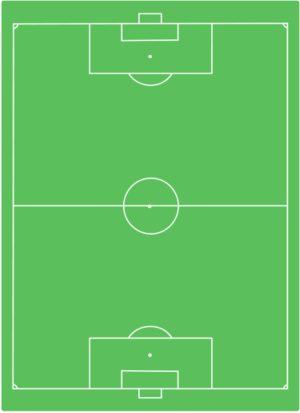Maccabi Haifa F.C.
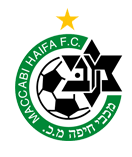 |
||||
| Full name | Maccabi Haifa Football Club מועדון הכדורגל מכבי חיפה |
|||
|---|---|---|---|---|
| Nickname(s) | The Greens הירוקים (Hayerukim) |
|||
| Founded | 1913[1] | |||
| Ground | Kiryat Eliezer, Haifa (Capacity: 14,002) |
|||
| Owner | ||||
| Chairman | ||||
| Manager | ||||
| League | Israeli Premier League | |||
| 2009–10 | 2nd | |||
|
||||
Maccabi Haifa Football Club (Hebrew: מועדון הכדורגל מכבי חיפה, Moadon HaKaduregel Maccabi Haifa) is an Israeli football team from the city of Haifa, a section of Maccabi Haifa sports club. The club has won 11 championships, 5 State Cups and 4 Toto Cups. The club was founded in 1913, and is the first Israeli club to qualify for the group stage of the UEFA Champions League.
Contents |
History
Maccabi Haifa Football Club was established in 1913 in the port city of Haifa, in present day Israel. It was a small, struggling club that spent most of its time shifting between Liga Leumit and the lower leagues. The club was overshadowed by its city rival Hapoel Haifa. But even in its first years the club adapted a very adventurous and offensive style of play based on technique and short passes. In 1942, the club reached the Israel State Cup final, but was defeated 12-1 by Beitar Tel Aviv in the final. In 1962, the team defeated Maccabi Tel Aviv 5-2 in the State Cup final. In 1963 it reached the final again, but lost to Hapoel Haifa 1-0.
In the 1980s Maccabi Haifa finally entered the 'Israeli' champions' club, clinching the title thrice (in 1983/84, 1984/85 and 1988/1989 seasons). In the 1983-84 season Maccabi Haifa won its first ever championship, under coach Shlomo Sharf and general manager Yochanan Vollach, overcoming Beitar Jerusalem and Hapoel Tel Aviv. The Yerukim (Greens) were known for their "all-around-offense" and flashy technique football style, often resulting in bad defensive formation and resultant losses. Sharf's team played with 4 strikers, including: Moshe Selekter, Zahi Armeli and Ronny Rosenthal who were positioned at point and midfield and managed to build their defense around the legendary goalkeeper Avi Ran. A year later, Maccabi Haifa won a second championship in a decisive performance. In 1986 Maccabi lost the championship in a controversial final match against runner-ups Hapoel Tel Aviv. The single goal scored in that match by Gili Landau was said to be scored from a passive offside position, which by the rules of the time should have resulted in a disqualification of the goal and a scoreless draw, guaranteeing MHFC the title. Due to poor TV coverage, the issue has never been resolved. In 1988, Maccabi Haifa decimated Maccabi Tel Aviv 10-0 to earn its biggest win ever. That game, one of the more famous in Israeli's football lore, wasn't even televised. Furthermore, it probably was the beginning of the intense rivalry between the two clubs. In 1989, under the capable hands of Amazzia Levkovic, the club won another championship.
In 1990 Maccabi Haifa established itself as a dominant club in Israel. It began by winning the "double" - League championship and the national cup in the 1990/1 season and continued with the introduction of three talented young players: Eyal Berkovic, Reuven Atar and Tal Banin. In 1992 Maccabi Haifa was purchased by Ya'akov Shahar, who became the owner and president of the club. Under Shahar's management, Maccabi Haifa enjoyed financial stability and professional working regulations on a par with European football clubs' standards. Maccabi Haifa's highlight season was 1993-94. After winning the 1993 cup, Maccabi Haifa gave a stunning performance in the UEFA Cup Winners' Cup (CWC), beating FC Torpedo Moscow 3-1 and Parma A.C. 1-0 in the last 16, only to lose on penalties. During the season in the domestic league (then called Liga Leumit), the team went unbeaten for the entire season, out of an overall unbeaten streak of 48 games, thus winning a spectacular championship, and breaking many Israeli records. The Maccabi Haifa 1993/4 squad including Eyal Berkovic, Reuven Atar, Alon Mizrahi and Serhiy Kandaurov, and is considered one of the best squads in Israeli football history.
In 1996 Eyal Berkovic and Haim Revivo, the latter had joined the team the previous season, both left Haifa for European clubs. While the two gained great personal success there, Maccabi Haifa went into a slump. The team's standards of maintaining the services of the manager for multiple seasons was thrown as the team went through several managers during 4 years. As result, the team failed to win the national championship title, despite securing the National cup in 1998.
In 1999, under the guidance of the Czech manager Dušan Uhrin, Maccabi Haifa beat French giants Paris Saint-Germain and Austrian club SV Ried to reach the quarter-final of the Cup Winners' Cup. In the middle of the season, Haifa's excellent striker Alon Mizrahi left for French club Nice resulting in a defeat in the CWC quarter final and a slump in the club's league performance. The club's winning record continued to falter until the arrival of Avraham Grant.
Former Maccabi Tel Aviv coach Avraham Grant was appointed in 2000 as manager of Maccabi Haifa. Under Grant's guidance, the team regained its dominating offensive style. Grant, along with a much improved squad, led the club with an almost unstoppable team, winning the championship. At the center of attention were a series of virtuoso performances by Yossi Benayoun, including what some consider to be several of the finest goals in Israeli league history. A spontaneous burst of celebrating fans onto the pitch caused a tragic disaster. A young fan, Amir Rand, was crushed against the guarding rails and left comatose.
A year later, Grant won a second championship, relying on a trio of foreign footballers: Giovanni Rosso (Croatia), Raimondas Žutautas (Lithuania) and the young Nigerian striker Aiyegbeni Yakubu. Following the second championship, Avraham Grant left Haifa for the Israeli national team and was replaced by then Israel U-21 manager Itzhak Shum.
In 2002, Haifa made Israeli club history by becoming the first Israeli team to qualify for the group phase of the UEFA Champions League. In the group phase, the team defeated Olympiacos and Manchester United. Haifa managed 7 points overall scoring 12 goals, and finished in the third place, securing a place in the UEFA Cup.
In the 2003/4 season Maccabi Haifa, led by ex-Maccabi footballer Ronny Levy won the championship mainly due to the poor showing of the other league teams. Maccabi Haifa youth club (ages 16–18) won the domestic championship, and an Israel national kids team of Maccabi Haifa players won Fox Kids World Cup for 12-year-olds.
History was made during the 2005/06 season. After months of indecision regarding the contract of Ronny Levy, it was renewed and Levy guided the club to eleven straight victories in the first eleven games of the Israeli Premier League season. This was also the key to Maccabi Haifa taking the league title after building a strong lead. While the club enjoyed great domestic success, it was not as fortunate in European play. Though Haifa was a seeded team for the UEFA Champions League second qualifying round, it drew the strong Swedish club, Malmö FF. Haifa lost 3-2 in Sweden,and drew 2-2 at home.
In the 2006/07 season, the club played against Liverpool. In the first game of the third round of the qualifying matches held in England, Haifa's Gustavo Boccoli scored on the 29th minute an advantage that lasted just four minutes. Craig Bellamy evened the score and in front of 40,000 local fans, Haifa stood bravely up to the 88th minute when Mark Gonzales scored the winning goal for the hosts. Due to the security situation in Israel, the return match was not held in Ramat Gan but in Kiev, Ukraine, at the Valery Lobanovsky stadium, with 1,700 spectators. The game ended in a 1:1 tie. The last twenty minutes of the game were stressful for Rafa Benitez's players. Indeed, the giant Peter Crouch gave his team the advantage (54) and an away goal, but Roberto Colautti (63) tied the score and from here on the movement towards the host's goalpost became one-sided. The tie score sent Haifa to compete in the UEFA Cup.
In the return match in Bulgaria, Haifa played well: Xavier Dirceu scored an impressive goal from a distance, Alain Masudi and Roberto Colautti left Eljendario Sanderinio one honor goal. In the Groups stage, Haifa faced strong opponents: The Scottish Rangers F.C., the Serbian Partizan Belgrade, the French Auxerre and the Italian Serie A team Livorno. In the 88th minute, the Scots succeeded in doubling the score from another penalty kick given away by a Haifa defender. This time Charlie Adam scored and sealed the victory. Haifa returned home and hosted Partizan Belgrade. An early goal by Anderson Xavier, the Brazilian midfielder, put Haifa in an excellent place with six points. Haifa needed one point in the away game in Italy against Livorno to complete the task successfully. At this stage Haifa was drawn against CSKA Moscow. The game was moved to the Spartak stadium in Vladikavkaz due to extreme weather in Moscow. 30,000 Russian fans crowded the stadium. Torpedo beat Haifa 1:0 and Lokomotiv beat it 3:0. Again Haifa did not score an away goal, but the result (0:0) signaled that Haifa might use its home advantage in the return match.
In the 2007/08 season, Maccabi Haifa finished 5th place in the League and was eliminated in the last-16 phase of the State Cup. Ronny Levy announced that he was leaving. Haifa won the Toto Cup after a 2-0 victory over Bnei-Sakhnin.
Haifa opened the 2008/09 season with hopes of remaining a top team. At the end of the season, coach Elisha Levy won his first personal title and Haifa made Israeli soccer history, winning six championships in one decade.
Maccabi Haifa returned to the Champions League for the 2009-2010 season. A 3:0 win over FC Red Bull Salzburg insured its second win in the span of seven years, with goals by Dvalishvili, Golasa and Ghadir. Haifa entered the 2009/10 Champions League group stage in Group A, competing against FC Bayern Munich, Juventus and Girondins de Bordeaux. Haifa finished the competition as one of the worst showing in Champions League history, with a record of 6 losses, conceding 8 goals and without scoring. The club subsequently lost the championship title to Hapoel Tel Aviv on the last day of the season.
Sponsorship and fan base
The club is sponsored by Ya'akov Shahar, chairman of Mayer's Cars and Trucks Ltd., the official importer to Israel of Volvo and Honda. The fan base is mainly in Haifa and northern Israel, although the club is one of the most popular in Israel. Average attendance in the home matches is approximately 9,000 fans.
Stadium
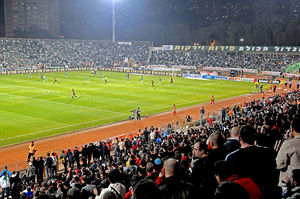
Maccabi originally played in Kiryat Haim, which is the main training grounds of Hapoel. In 1955, a gift from the Italian Labour Union was a football pitch in the heart of the city of Haifa, which would become the new home of Maccabi. The opening match was a Haifa derby, won by Maccabi 4-1 over Hapoel.
Kiryat Eliezer missed out on staging a historic event when Maccabi reached the group stage of the UEFA Champions League. It was the first time an Israeli club had made it that far in the competition, though the lucrative gate receipts expected to have been made by hosting matches in Israel were lost when UEFA forced Maccabi to look for an alternative in Europe but outside of Israel because of security concern. The choice was to host the matches at Neo GSP Stadium in Nicosia, Cyprus.
New stadium
Due to the recent success of the club in European competitions, the municipality of Haifa offered the club land for a stadium at the southern entrance to the city. In the fall of 2008, the final plans were approved. Maccabi Haifa is scheduled to move into Sammy Ofer Stadium in the summer of 2012.
Players
First-team squad
|
Davidovitch
Ottman
Maimon
Canuto
Masilela
Golasa
Silva
Culma
Refaelov
Katan
Dvalishvili
|
| Maccabi Haifa Starting 11 in their 4–2–3–1 formation as played in 2010-11 pre-season friendlies |
As of July 22, 2010
Note: Flags indicate national team as has been defined under FIFA eligibility rules. Players may hold more than one non-FIFA nationality.
|
|
Squad changes in 2010–11
In
Summer Transfer Window
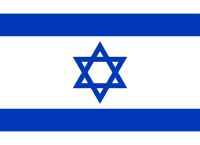 Arik Benado —
Arik Benado —  Beitar Jerusalem — Free transfer
Beitar Jerusalem — Free transfer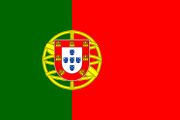 Adrien Silva —
Adrien Silva —  Sporting CP — Loan
Sporting CP — Loan Idan Vered —
Idan Vered —  Beitar Jerusalem — $1.200.000
Beitar Jerusalem — $1.200.000 Tomer Hemed —
Tomer Hemed —  Maccabi Ahi Nazareth — Loan return
Maccabi Ahi Nazareth — Loan return Ignacio Canuto —
Ignacio Canuto —  Argentinos Juniors — $1.000.000
Argentinos Juniors — $1.000.000
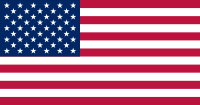
 Alex Zahavi —
Alex Zahavi —  Sporting CP — Free transfer
Sporting CP — Free transfer Tom Almadon —
Tom Almadon —  Hakoah Ramat Gan — Loan return
Hakoah Ramat Gan — Loan return
Out
Summer Transfer Window
 Jorge Teixeira —
Jorge Teixeira — 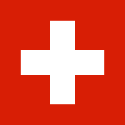 FC Zürich — €1.200.000
FC Zürich — €1.200.000 Shlomi Arbeitman —
Shlomi Arbeitman — .svg.png) K.A.A. Gent — €1.000.000
K.A.A. Gent — €1.000.000 Biram Kayal —
Biram Kayal — 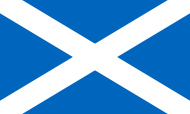 Celtic — £ 1.200.000
Celtic — £ 1.200.000 Dekel Keinan —
Dekel Keinan — 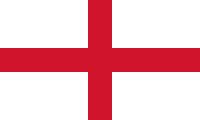 Blackpool — End of contract
Blackpool — End of contract Yisrael Zaguri —
Yisrael Zaguri —  Hapoel Petah Tikva — Loan
Hapoel Petah Tikva — Loan Muhamad Kalibat —
Muhamad Kalibat —  Hapoel Acre — Loan
Hapoel Acre — Loan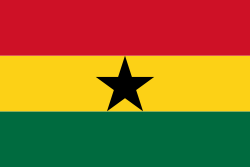 Sadat Bukari —
Sadat Bukari — 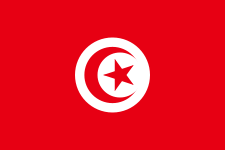 Étoile Sportive du Sahel — Loan
Étoile Sportive du Sahel — Loan Haim Susskind —
Haim Susskind —  Hapoel Herzliya — Loan
Hapoel Herzliya — Loan
Foreigners 2010-11
Only up to five non-Israeli nationals can be in an Israeli club squad. Those with Jewish ancestry, married to an Israeli, or have played in Israel for an extended period of time (e.g. Gustavo Boccoli), can claim a passport or permanent residency which would allow them to play with Israeli status.
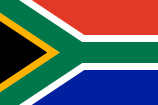 Tsepo Masilela
Tsepo Masilela Vladimir Dvalishvili
Vladimir Dvalishvili John Culma
John Culma Adrien Silva
Adrien Silva Ignacio Canuto
Ignacio Canuto
Former players
For details on former players, see List of Maccabi Haifa F.C. players and Category:Maccabi Haifa F.C. players.
Honours
- Israeli Championships
- Winners (11): 1983–84, 1984–85, 1988–89, 1990–91, 1993–94, 2000–01, 2001–02, 2003–04, 2004–05, 2005–06, 2008–09
- Second Division
- Winners (2): 1965–66, 1974–75
- State Cup
- Toto Cup
- Israel Champion of Champions Cup
- Sukkot Cup
- Winners (1): 1958
- Lilian Cup
- Winners (1): 1984
- Milk Cup
- Winners (1): 2004
Records
- Record home win: 10-0 v Maccabi Tel Aviv 1988
- Record away win: 7-0 v Ironi Rishon LeZion 1999
- Record League Defeat: 0-9 v Hapoel Petah Tikva, 1953
- Record Cup Defeat: 1-12 v Beitar Tel Aviv, Israel State Cup, Final, 1942
- Record home Attendance: 38,800 v Bayern Munich, 2009
- Most League Appearances: 419 Alon Harazi
- Most appearances in one season: 66 Adoram Keise
- Most League Goals: 90 Zahi Armeli
- Most League Goals in a Season: 28 Alon Mizrahi, Liga Leumit, 1993/1994 and Shlomi Arbeitman 2009/2010
- Most Goals scored in a Match: 6 Aharon Gershgoren v Ironi Kiryat Shmona, 1965
- Most League Goals in a Season: 97 1993/1994
- Most points in a season: 95 - 39 games 1993/1994
- Most league assists in a season: 16 Eyal Berkovic (1993/1994) and Yossi Benayoun (1999/2000)
- Most Games without a loss 46 (throughout 3 seasons) 1993, 1993/1994, 1994
- Most Games in a row scoring at least one goal 39 1993/1994
- Most Away Games without losing 30 1993/1994
- Lowest conceded goals per game: 16 goals in 35 games (average: 0.46), Ligat Ha'Al, 2009/2010
Management
- Manager:
 Elisha Levy
Elisha Levy - Assistant Manager:
 Giorgi Daraselia
Giorgi Daraselia - First Team Coach:
 Adoram Keisi
Adoram Keisi - Goalkeeping Coach:
 Giora Antman
Giora Antman - Fitness Coach:
 Yoram Rozenbaum
Yoram Rozenbaum
Academy Coaching Staff
- Director of Youth Academy:
 Yehoshua Frankel
Yehoshua Frankel
Medical Staff
- Club Doctor: Dr. Ami Berber
- First Team Physio: Pinny Sharon
- Masseurs: Alexandre Robichek
Kit & Equipment Staff
- Kit Manager: Benny Idan
Managerial history
|
|
|
Performance in the top division
Maccabi Haifa have spent 48 seasons in the national top flight, finishing in these positions:
| 1st | 11 | 9th | 4 |
| 2nd | 5 | 10th | 1 |
| 3rd | 5 | 11th | 1 |
| 4th | 3 | 12th | 1 |
| 5th | 8 | 13th | 1 |
| 6th | 2 | 14th | 0 |
| 7th | 3 | 15th | 2 |
| 8th | 1 | 16th | 1 |
European record
| Season | Competition | Round | Club | Home | Away | Agg. | |
|---|---|---|---|---|---|---|---|
| 1993–94 | UEFA Cup Winners' Cup | Q | F91 Dudelange | 6–1 | 1–0 | 7–1 | |
| 1R | FC Torpedo Moscow | 3–1 | 0–1 | 3–2 | |||
| 2R | Parma | 0–1 | 1–0(aet) | 1–1(p) | |||
| 1994–95 | UEFA Champions League | Q | SV Austria Salzburg | 1–2 | 1–3 | 2–5 | |
| 1995–96 | UEFA Cup Winners' Cup | Q | KÍ Klaksvík | 4–0 | 2–3 | 6–3 | |
| 1R | Sporting Clube de Portugal | 0–0 | 0–4 | 0–4 | |||
| 1996–97 | UEFA Cup | 1QR | FK Partizan | 0–1 | 1–3 | 1–4 | |
| 1998–99 | UEFA Cup Winners' Cup | Q | Glentoran | 2–1 | 1–0 | 3–1 | |
| 1R | Paris Saint-Germain | 3–2 | 1–1 | 4–3 | |||
| 2R | SV Ried | 4–1 | 1–2 | 5–3 | |||
| QF | FC Lokomotiv Moscow | 0–1 | 0–3 | 0–4 | |||
| 2000–01 | UEFA Cup | 1Q | FC Slavia-Mozyr | 0–0 | 1–1 | 1–1(a) | |
| 1R | Vitesse | 2–1 | 0–3 | 2–4 | |||
| 2001–02 | UEFA Champions League | 2Q | FC Haka | 0–31 | 1–0 | 1–3 | |
| 2002–03 | UEFA Champions League | 2Q | FC Belshyna Babruisk | 4–0 | 1–0 | 5–0 | |
| 3Q | SK Sturm Graz | 2–0 | 3–3 | 5–3 | |||
| Group F | Manchester United | 3–0 | 2–5 | – | |||
| Group F | Bayer Leverkusen | 0–2 | 1–2 | – | |||
| Group F | Olympiacos | 3–0 | 3–3 | – | |||
| 2002–03 | UEFA Cup | 3Q | AEK Athens FC | 1–4 | 0–4 | 1–8 | |
| 2003–04 | UEFA Cup | Q | Cwmbran Town A.F.C. | 3–0 | 3–0 | 6–0 | |
| 1R | NK CM Celje | 2–1 | 2–2 | 4–3 | |||
| 2R | Valencia CF | 0–4 | 0–0 | 0–4 | |||
| 2004–05 | UEFA Champions League | 3Q | Rosenborg BK | 2–3 | 1–2 | 3–5 | |
| 2004–05 | UEFA Cup | 1R | FC Dnipro Dnipropetrovsk | 1–0 | 0–2 | 1–2 | |
| 2005–06 | UEFA Champions League | 2Q | Malmö FF | 2–2 | 2–3 | 4–5 | |
| 2006–07 | UEFA Champions League | 3Q | Liverpool | 1–1 | 1–2 | 2–3 | |
| 2006–07 | UEFA Cup | 1R | PFC Litex Lovech | 1–1 | 3–1 | 4–2 | |
| Group A | AJ Auxerre | 3–1 | – | – | |||
| Group A | Rangers | – | 0–2 | – | |||
| Group A | FK Partizan | 1–0 | – | – | |||
| Group A | A.S. Livorno Calcio | – | 1–1 | – | |||
| R32 | PFC CSKA Moscow | 1–0 | 0–0 | 1–0 | |||
| R16 | RCD Espanyol | 0–0 | 0–4 | 0–4 | |||
| 2009–10 | UEFA Champions League | 2Q | Glentoran | 6–0 | 4–0 | 10–0 | |
| 3Q | FC Aktobe | 4–3 | 0–0 | 4–3 | |||
| Play–off | FC Salzburg | 3–0 | 2–1 | 5–1 | |||
| Group A | Bayern Munich | 0–3 | 0–1 | – | |||
| Group A | Bordeaux | 0–1 | 0–1 | – | |||
| Group A | Juventus | 0–1 | 0–1 | – | |||
| 2010–11 | UEFA Europa League | 3Q | Dinamo Minsk | 1–0 | 1–3 | 2–3 |
See also
- Sport in Israel
References
External links
|
|||||||||||||||||
|
||||||||||||||||||||
|
|||||||||||||||||||||||
